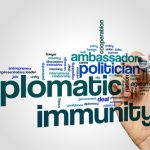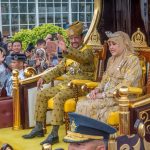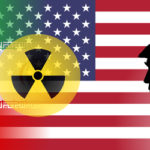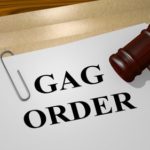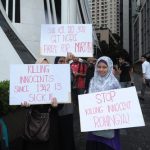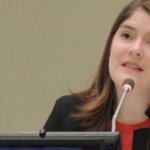Australia Talks Tough on Khashoggi Killing
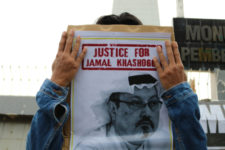
Australian foreign minister Marise Payne has labelled the alleged murder of journalist Jamal Khashoggi inside the Saudi Arabian embassy in Istanbul as “outrageous” and says Australia will closely consider a recently released report into the incident before deciding whether to take action against the oil-rich state.
The Death of Jamal Khashoggi
Mr Khashoggi was a Saudi Arabian national and Washington Post journalist known for being critical of the Saudi government, especially its ruling prince Mohammed bin Salman.
He fled his home country in 2017 to live in the United States, and entered Saudi embassy in Istanbul on 2 October 2018 to obtain papers required to marry his Turkish fiancé.
Information released by the Turkish government strongly suggests Mr Khashoggi never left the embassy, and was murdered there by a contingent of Saudi nationals acting at the direction of high-level Saudi-officials.
The Saudi government initially denied that Khashoggi died within the embassy, claiming he left via a back exit. But when it became apparent the journalist did not leave, the government claimed he was killed during a fight.
Once recordings were released regarding the events within embassy walls, the Saudi’s changed their story once again and stated that Prince bin Salman had no knowledge of the killing.
The Investigation
However, a 101-page report released by the UN’s special rapporteur on extrajudicial executions, Dr Agnes Callamard, has found “credible evidence” that the higher echelons of the Saudi government – including the prince – must have known about the killing and likely directed it.
The report contains a minute-by-minute chronology of Mr Khashoggi’s death, based upon recordings by Turkish listening devices. Among other things, the recordings details that while waiting for Khashoggi to arrive, a forensic doctor is asked how they will cover-up the killing.
“Joints will be separated. It is not a problem,” the doctor assures. “If we take plastic bags and cut it into pieces, it will be finished. We will wrap each of them.”
Dr Callamard names 15 people flown in from Saudi Arabia for the killing, who later return to their home country. Turkey had sought the extradition of 18 suspects in total, but Saudi Arabia has refused the request.
The US State Department has identified 16 people as responsible for the alleged murder, but Saudi apologist Donald Trump has refused to take action.
Recommendations
Dr Callamard has called upon UN secretary-general Antonio Guterres to “demand” a follow-up investigation.
She acknowledged Saudi Arabia has initiated secretive proceedings against 11 men over the incident, but fears it will amount to a mock trial with limited consequences for those involved. She is further concerned that those who likely directed the killing will remain unpunished.
Dr Callamard believes there is “no reason why sanctions should not be applied against the Crown Prince and his personal assets” — noting that the US has imposed sanctions against other nations it suspects of criminal conduct.
She also called on countries to invoke universal jurisdiction for what she describes as an international crime, and to put pressure on the Saudi government to extradite those involved.
Australia talks tough
Australian foreign minister Payne has stated, . “We are very, very concerned and very distressed about what has happened to Mr Khasoggi and it’s outrageous that he was killed in this way in diplomatic premises.”
“I want to consider that in detail and then to determine steps from Australia’s perspective”, she added.
Ms Payne has expressed disappointment with Saudi Arabia’s handling of the situation, stating “We’re disappointed that the special rapporteur did not receive the cooperation and support that we believe her investigation deserved from Saudi Arabia and some others.”
Economic ties
But it seems the response by Western nations has been tokenistic, with governments fearful of jeopardising their economic ties with the Saudis – many of which have been kept secret through “commercial in confidence rules”.
At least 10 licences were granted in 2017 to export weapons from Australia to Saudi Arabia, and another four were granted this year.
During Senate Estimates in October 2018, defence officials could not guarantee that Australian arms are not being used in the conflict in Yemen, conceding that defence sales “will contribute to the capability of a military force and will often contribute to a conflict.”
In fact, former defence minister Christopher Pyne flagged a desire in September 2018 to enter a formal defence industry agreement with Saudi Arabia, and none of this has been taken off the table thus far as a result of Mr Khashoggi’s killing.


